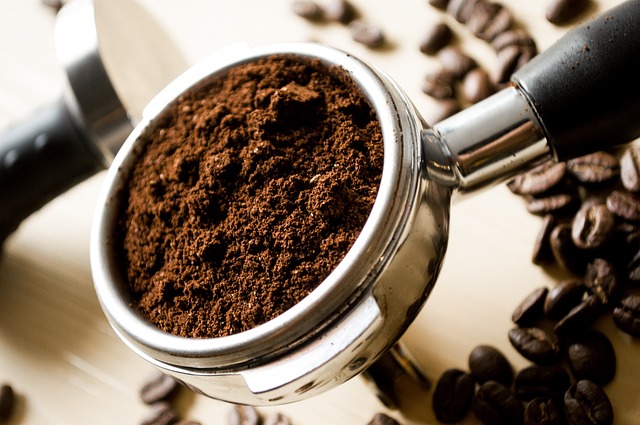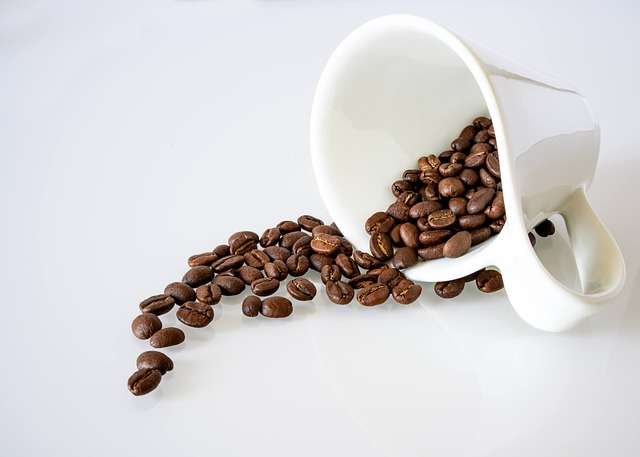Should I Drink Coffee Before an Exam?
1. Introduction
Ah, the aroma of freshly brewed coffee. For many, it’s not just a beverage but a ritual, a daily fix, a comfort blanket. For students worldwide, amidst the piles of books and the looming pressure of exams, the question often arises: Should I drink coffee before an exam? Exams are a significant part of our educational journey, and everyone is on the hunt for that secret ingredient that might give them an edge. Coffee, with its promise of alertness and better concentration, often stands at the forefront of this quest. But is it really the elixir we think it is?
Let’s dive deeper and decipher the brew’s real impact on our exam performance.
2. The Science of Caffeine
At the heart of this debate is caffeine, coffee’s primary psychoactive compound. Before we weigh the pros and cons of sipping on that cup of java before an exam, it’s crucial to understand how caffeine operates in our system.

How Caffeine Works:
- Adenosine Receptor Blockage: Caffeine functions by blocking adenosine receptors in the brain. Under normal circumstances, adenosine promotes sleep and drowsiness. When its receptors are blocked, the result is increased alertness and wakefulness. This is why many opt for coffee when trying to counteract the effects of a sleep-deprived night. However, is staying awake always a boon, especially before a crucial test? Check our article The Best Time to Drink Coffee in the Afternoon.
- Stimulation of Central Nervous System (CNS): Caffeine acts as a stimulant for the CNS, leading to enhanced mood, energy, and alertness. It’s the same principle that makes us reach for that cup of black coffee when we need a quick pick-me-up
- Increase in Dopamine Production: Dopamine is our “feel-good” neurotransmitter. Caffeine helps increase its levels, often leading to improved mood and feelings of well-being.

Factors Influencing Caffeine’s Effects:
- Tolerance: Just like any other substance, the more regularly you consume caffeine, the higher your tolerance. This means that habitual coffee drinkers might need more than one cup to feel its effects.
- Metabolism: Everyone metabolizes caffeine differently. For some, even a small amount can cause jitteriness or rapid heartbeat, while others might not feel much after a large cup.
- Coffee’s Composition: Not all coffee is made equal. An espresso shot will have a different caffeine concentration than a latte or cappuccino. It’s always advisable to know your brew Check: How to Make Good Coffee at Home with Machine.
| Type of Coffee | Average Caffeine Content |
|---|---|
| Espresso | 63 mg per shot |
| Latte | 77 mg per 8 oz |
| Cappuccino | 75 mg per 8 oz |
| Black Coffee | 95 mg per 8 oz |
In understanding the science of caffeine, we can better assess whether it’s a good idea to have coffee before an exam. As we progress, we’ll address its pros and cons, and dive into some commonly asked questions about coffee and exam performance.

3. Pros of Drinking Coffee Before an Exam
While many of us can’t imagine starting our day without a cup of coffee, there’s more to this brew than just kick-starting our mornings. Let’s explore some benefits of consuming coffee before diving into that crucial exam:
- Increased Alertness: One of the most known effects of caffeine is its ability to combat drowsiness. By blocking the adenosine receptors, as discussed earlier, caffeine can keep you awake and alert. For students who didn’t get a full night’s rest or need to take exams early in the morning, this perk can be invaluable.
- Enhanced Memory Recall: Recent studies have suggested that caffeine can boost certain memory processes. Especially when it comes to short-term recall, having a cup of coffee might just give you the edge you need to remember those tricky details or complex formulas. However, the relation between coffee and memory is still an area of ongoing research.
- Improved Focus: With exams demanding prolonged concentration, a caffeine boost might be what some students need. Coffee’s stimulatory effects can sharpen your attention span, allowing you to tackle challenging questions with increased clarity. Want to know more about how caffeine enhances focus? Dive deeper into its effects here.
4. Cons of Drinking Coffee Before an Exam
However, like all things, moderation is key. Relying too heavily on coffee, especially right before an important task like an exam, can have its drawbacks:
- Test Anxiety: While a little bit of stress can be a good thing, pushing your body into overdrive with too much caffeine can intensify feelings of anxiety. Overconsumption can lead to symptoms like increased heart rate, jitteriness, and an overwhelming sense of panic – not ideal situations for an exam setting.
- Gastrointestinal Issues: Coffee can be harsh on the stomach for some. Drinking it on an empty stomach or consuming too much can lead to stomach aches, acid reflux, or even nausea. Imagine having to tackle an exam with an upset stomach!
- Disturbed Sleep Patterns: Consuming coffee late in the evening or closer to bedtime can interfere with your sleep cycle. A disturbed sleep means you might wake up feeling groggy and not in the best state of mind to sit for an exam. For insights into optimizing your coffee consumption timings, check out our guide on the best times to drink coffee.
Points to Ponder:
- Always know your caffeine limit. What works for your friend might not work for you.
- Time your coffee consumption. Drinking it too close to the exam might lead to more harm than good.
- Always ensure you balance coffee consumption with adequate water intake to avoid dehydration.
5. Addressing Common Questions
With the ongoing debate on coffee’s role in exam performance, several questions arise. Let’s tackle some of the most frequently asked ones:
- What is the Best Drink Before an Exam?
- While coffee has its merits, it’s not the only beverage that can aid in exam performance. Herbal teas like chamomile can soothe nerves, while green tea offers a milder caffeine kick. For those who wish to avoid caffeine, water remains an essential, ensuring hydration and optimal brain function.
- Coffee and Test Scores: A Direct Link?
- It’s hard to establish a direct link between coffee consumption and test scores. While caffeine can increase alertness and improve short-term memory, factors like the student’s preparation, understanding of the subject, and general well-being play significant roles.
- Timing it Right: Coffee Before or After Studying?
- Timing is critical when it comes to coffee. Drinking it before studying can heighten focus and make retention easier. However, coffee post-study, especially if close to bedtime, might disrupt sleep. It’s always about balance and understanding your body’s caffeine response. For those passionate about crafting the perfect cup at any time, here are some tips on making great coffee at home.
- The Do’s and Don’ts: Foods and Drinks to Avoid Before Exams
- Apart from coffee, it’s essential to be cautious about what you consume before exams. High sugar foods can lead to a quick energy crash, while heavy, greasy meals can make one feel sluggish. Stick to light, nutritious options like fruits, nuts, and lean proteins.
6. Boosting Energy Without Coffee
Not a fan of coffee or want to explore other avenues for that pre-exam energy boost? Here are some alternatives:
- Hydration: Keeping hydrated is vital. Even mild dehydration can impair cognitive functions. Always have a bottle of water handy during your study sessions and exams.
- Healthy Snacks: Foods rich in omega-3 fatty acids, like walnuts and flaxseeds, can boost brain function. Snacking on blueberries can offer antioxidants beneficial for the brain.
- Short Breaks: Instead of cramming continuously, take short breaks. A quick walk, a bit of stretching, or even some deep breathing exercises can rejuvenate the mind.
- Power Naps: A short nap of 20-30 minutes can enhance alertness without entering the deeper stages of sleep, preventing grogginess.
- Natural Supplements: Some students turn to natural supplements like ginseng or Ginkgo biloba for improved cognitive functions. However, it’s crucial to consult with a healthcare professional before trying any supplement.
- Bulletproof Coffee: A unique blend of coffee, butter, and MCT oil, bulletproof coffee is said to provide sustained energy. Learn how it might work as a pre-workout or study boost here.

7. Brain Warm-up Techniques Before an Exam
Preparing for an exam doesn’t stop at the study desk. Warming up your brain right before you take a seat in the exam hall can give you a head start. Here’s how you can rev up those cognitive engines:
- Quick Revision: Skim through your notes, focusing on essential points or formulas. This acts like a quick recap, bringing crucial information to the forefront of your mind.
- Deep Breathing: Deep, rhythmic breaths can help oxygenate your brain, making you feel refreshed and alert. It’s a straightforward yet effective technique to calm nerves.
- Visualization: Imagine yourself confidently answering questions and completing the exam. Visualization can create a positive mindset and reduce anxiety.
- Brain Games: Engaging in quick puzzles or Sudoku can stimulate your mind. Think of it as a light jog before the marathon.
- Stay Hydrated: We’ve mentioned this before, but it’s worth reiterating. Drink water to keep your brain hydrated.
- Listening to Music: Some melodies, especially classical tracks, can enhance cognitive functions. Consider listening to calming or stimulating tunes, depending on what you feel you need.

8. Balancing Relaxation and Study Before an Exam
The eternal dilemma: to cram the night before or to relax? Here’s a breakdown to help make that decision:
- The Value of Rest: A well-rested brain functions better. Period. Pushing yourself too hard can lead to burnout, which can adversely affect performance. So, make sure to get adequate sleep, especially the night before the exam.
- Focused Study vs. Continuous Cramming: Instead of lengthy cramming sessions, opt for focused, shorter study bursts. Use techniques like the Pomodoro Technique: 25 minutes of concentrated study followed by a 5-minute break.
- Relaxation Techniques: Stress and anxiety can hamper memory recall. Engage in relaxation techniques like meditation, deep breathing, or even a warm bath to calm the nerves.
- Night Before the Exam: It’s essential to strike a balance. Review crucial points, but don’t dive into new topics. Allow your brain some downtime. Maybe indulge in a cup of your favorite brew. For those unsure about their coffee choice, consider these fantastic options for black coffee to aid weight loss.
Conclusion: To Brew or Not to Brew Before an Exam?
Navigating the complex world of exams is a challenge in itself, and when combined with decisions about caffeine consumption, it becomes a unique brew of choices. From our exploration, it’s evident that while coffee offers undeniable benefits like increased alertness and improved focus, it’s not a one-size-fits-all solution.
For some, a cup of coffee might be the perfect companion to their study sessions, providing that much-needed energy boost. For others, it might be a source of jitters and anxiety. And then there are those who prefer alternative methods of revving up their cognitive engines, be it through hydration, healthy snacks, or other warm-up techniques.
If you’re a coffee lover, remember: moderation is key. Understand your body’s caffeine thresholds, time your consumption appropriately, and always ensure a balanced diet to accompany your brew. And if you’re looking to explore further, remember there’s a world of knowledge on optimizing your coffee experience, from finding the perfect grinder for your Aeropress to understanding how to perfectly sip cappuccinos at different times of the day.
But above all, remember that while beverages, food, and study techniques play their part, self-confidence and trust in one’s preparation are irreplaceable. So, whether you choose to sip that coffee or not, walk into that exam hall with confidence, knowing you’re prepared to the best of your ability. Best of luck!







